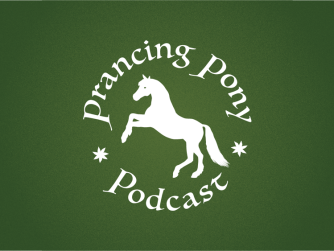After hearing Merry and Pippin’s account of their recent adventures, Treebeard starts talking (and doesn’t stop) about wizards, ecopolitics, and “the one that got away”. Unfortunately, spokesplants for Fimbrethil and the Entwives have not responded to requests for comment, and we won’t hold our breath waiting for them to. But at least now Treebeard seems motivated to do something about Saruman, if only he can find enough Ents to form a posse. Plus, a letter to Barliman offers possible alternatives to the *cough* old-fashioned way of making baby Ents.
Recommended Reading:
Tolkien, J. R. R. The Two Towers: Being the Second Part of The Lord of the Rings (Mariner Books, paperback) “Treebeard”, pp. 460-65
Tolkien, J. R. R. (Christopher Tolkien, ed.) The Silmarillion (Mariner Books, paperback)
Carpenter, Humphrey, ed. The Letters of J.R.R. Tolkien (Mariner Books, paperback)
Tolkien, J. R. R. Tree and Leaf: Including “Mythopoeia” (HarperCollins, paperback)
Shippey, Tom. J.R.R. Tolkien: Author of the Century (Mariner Books, paperback)



I’ve just finished listening to Episode 195. I think you missed a chance to explain that when Treebeard speaks of the Entwives’ fields full of “corn,” he means grain–barley, wheat or rye, which is common usage even today in Britain. The British use the word “maize” for what Americans call corn.
“Corn” being derived from the same OE word as “kernel”.
Hi, Merri –
Indeed, we probably should have mentioned it again. We touched on it back in episode 094 when we covered the Prologue (there’s a line in there about “cornlands” and we explained that it meant ‘grain’, and not ‘maize’). We also talked about it in episode 170, in our sidebar on Lembas. There, we referenced ‘Of Lembas’ from The Peoples of Middle-earth where the text talks about “a kind of corn which Yavanna brought forth…” so we dove into the differences.
This would have been a good chance to bring it up again, but we’ll have another opportunity near the end of the book: ‘corn’ comes up again in The Scouring of the Shire and in The Grey Havens, so we’ll make sure to touch on it again then – thanks!
Re: Treebeards confusion at Hobbits lying down to sleep, I think the line right after is explanatory – he got lost in memories and thought he was talking to a pair of young Entlings. And now my eyes are tearing up again. It’s been one of those episodes, this.
Re: Meeting the Entwives again, the Ents do seem to have given up on finding them in Middle Earth, but that doesn’t mean they can never meet again. Even if the Entwives are dead, that just means their souls are separated from their bodies, and souls are imperishable. If Entish souls are more like those of Elves than Men – bound to Arda – as seems more likely to me, then the chance of meeting them again is very real. The Ents seem to have been given a prophecy about this, possibly by Yavanna.
The way in which Ents and Entwives couldn’t live together on the same land is an interesting parallel to how societies of pastoral nomads and settled agriculturalists historically conflicted.
I don’t think Treebeard really loses his nerve in regards to fighting Saruman, more that he starts really thinking about how to do it and do it properly. If he had just marched off by himself to bang on the doors of Isengard he would have accomplished practically nothing and almost certainly died in the process. Instead he calms down and starts really thinking about how they could do more than just take a principled stand, but actually win.
Re: The corruption of men vs breeding with orcs. I suspect both. An uncomfortable subject to be sure, but that doesn’t mean it should go unaddressed. Saruman had only started acting openly after the attempt at suborning/imprisoning Gandalf, but it’s clear he must have long been preparing in secret to have an army of orcs ready for the war with Rohan. It doesn’t need to be said, but should be – the crossing of uncorrupted humans and orcs would definitely be nonconsentual, would be rape. That means slavery or kidnapping, disappearances, escape attempts and almost certainly suicides. Not to mention the need for guards and “nurses” who would also have to be humans, since orcs are too volatile. Way too many chances for someone inside to blab, someone outside to notice, or for a captive to escape, and then the secret is out early. If he corrupted and twisted the humans first, so that they were non-resistant* participants that would go better for him.
* I initially wrote “willing,” but it’s questionable how willing you can be if your will is manipulated/twisted.
A possible resource for upcoming episodes: You might already be aware, but historian Bret Deveraux made a pair of essays on the battles of Helm’s Deep and Minas Tirith, analysing them and comparing the portrayals in the books and the films. I found them very interesting, especially his analysis of Saruman’s qualities as a general compared to Sauron/the Witch King. He also touches on Tolkien’s works and the movie portrayals in some of his other essays.
They can be found on his blog at https://acoup.blog/resources-for-world-builders/
Sorry for the rambling, btw. I posted this without editing, because I have a bad habit of convincing myself into not posting at all, otherwise